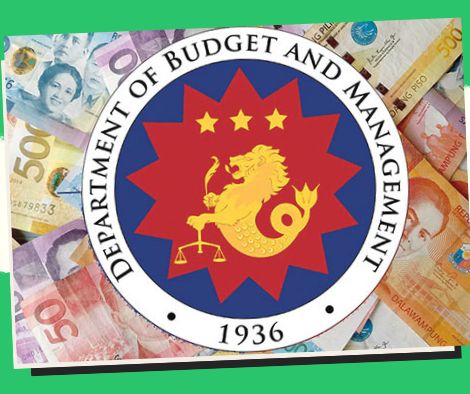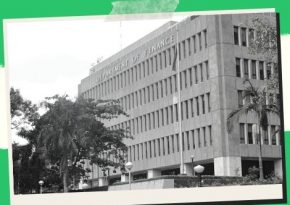
Priority is given to infrastructure development and digitization in the 2024 budget plan
According to Budget Secretary Amenah Pangandaman on Friday, the Marcos administration has prioritized the growth of the nation’s infrastructure sector and the anticipated digital transformation in the proposed national budget for 2024.
In order to achieve “economic and social transformation for a prosperous, inclusive, and resilient society,” Pangandaman stated during the Fiscal Year (FY) 2024 Budget Forum at the Philippine International Convention Center (PICC) in Pasay City that the budget for the following year would include the government’s priorities and policy directions.
The budget priorities, according to her, would include the development of infrastructure, the push for government digital transformation, the strategy to enhance local government units (LGUs), and the sustainable management and use of natural resources by 2030.
The Medium-Term Fiscal Framework, or MTFF, is a roadmap that will help us reach our socioeconomic development objectives for Fiscal Year 2024, according to Pangandaman.
The budget proposal for FY 2024 should take into account the priorities and policy directions of the Marcos Jr. Administration as reflected in the eight-point socioeconomic agenda and the Philippine Development Plan (PDP) 2023–2028, she continued. “We have emphasized this in our Budget Call,” she said.
The MTFF will act as the nation’s guide for reducing its fiscal deficit, promoting fiscal sustainability, and fostering strong economic growth as it begins to recover from the coronavirus disease 2019 (Covid-19) epidemic.
Contrarily, the eight-point socioeconomic agenda of the administration focuses on social protection, efficient bureaucracy, affordable and clean energy, better transportation, social protection, health care, and education.
The PDP 2023–2028 intends to support significant economic and social change in order to boost job growth and hasten the fight against poverty.
To “guide the economy back to its high-growth trajectory and achieve medium-term fiscal sustainability,” Pangandaman said, the government will continue adopting risk-based management interventions in the priority areas under the eight-point plan.
Plans that are “implementation-ready”
Pangandaman further highlighted that only “implementation-ready” government agency programs will be included in the national budget for 2024.
She reminded the participants in the budget forum who were the leaders of the budget, accounting, and planning divisions of national government agencies (NGAs) and government-owned or -controlled businesses (GOCCs).
We will make sure that only agency proposals that are ready for implementation are included in the FY 2024 national budget due to the conflicting demands of government programs against the backdrop of scarce resources. So that we may manage our budget effectively and efficiently, the agencies’ budget proposals ought to include specific program ideas and designs, according to Pangandaman.
She claimed that the Cash Budgeting System (CBS), a public financial management reform intended to address delays brought on by the accumulation of contracts, underspending, and difficulties with the implementation capacity of agencies, is distinguished by the inclusion of programs that are ready for implementation.
She continued by saying that as part of the appraisal process, her office will also examine the government agencies’ performance and budget usage during the prior fiscal year.
Pangandaman stated, “With all these guiding principles, we will concentrate and optimize the national government’s resources to get their maximum advantage and multiplier effects for the economy.
reclaim public faith and trust
To restore public confidence in the administration, the budget chief also urged the guests to embrace fiscal changes.
The 2-Tier Budgeting Approach, the disaggregation of lump sum sums inside agency-specific budgets, a reliable monitoring and assessment system based on results, the Open Government Partnership, and other changes are among the reforms, according to Pangandaman.
By implementing our current changes for increased budget transparency, openness, accountability, and dependability, she said, “let us continue to reclaim public trust and confidence.”
Following the publication of Memorandum 145, also known as the National Budget Call, which marks the beginning of the planning stage for the creation of the National Expenditure Program for FY 2024, the conduct of budget fora is a key component of the beginning of budget preparation throughout the bureaucracy.
Save/Share this story with QR CODE
Disclaimer
This article is for informational purposes only and does not constitute endorsement of any specific technologies or methodologies and financial advice or endorsement of any specific products or services.
📩 Need to get in touch?
Feel free to Email Us for comments, suggestions, reviews, or anything else.
We appreciate your reading. 😊Simple Ways To Say Thanks & Support Us:
1.) ❤️GIVE A TIP. Send a small donation thru Paypal😊❤️
Your DONATION will be used to fund and maintain NEXTGENDAY.com
Subscribers in the Philippines can make donations to mobile number 0917 906 3081, thru GCash.
3.) 🛒 BUY or SIGN UP to our AFFILIATE PARTNERS.
4.) 👍 Give this news article a THUMBS UP, and Leave a Comment (at Least Five Words).
AFFILIATE PARTNERS

World Class Nutritional Supplements - Buy Highest Quality Products, Purest Most Healthy Ingredients, Direct to your Door! Up to 90% OFF.
Join LiveGood Today - A company created to satisfy the world's most demanding leaders and entrepreneurs, with the best compensation plan today.



 Business Technology, Finance Technology & Information Technology
Business Technology, Finance Technology & Information Technology





